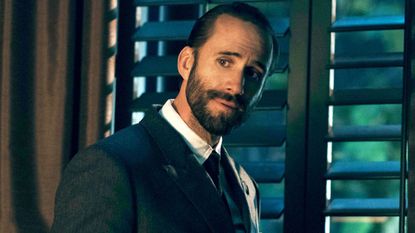

In a world where women's rights still aren't considered human rights, The Handmaid's Tale is as terrifyingly prescient as it is genius. And a character like Joseph Fiennes' The Commander is a constant reminder that actual men in power are actively working to strip women of their agency. He's a fundamentalist who's completely consumed by sexism, and in the final episode—when Offred is hauled out of his house by men who could either be good or evil—The Commander finally experiences what it's like to have something taken from him.
MarieClaire.com spoke to Fiennes about the finale's giant cliff-hanger, how The Handmaid's Tale will jump into season two without Margaret Atwood's book as source material, and how real-life political leaders impacted the creation of 2017's most complicated antagonist.
"To finally get out of The Commander's house is a double-edged possibility. I would like to feel there's hope. I would like to think this potentially is a good thing, but June has been blackmailed by Serena, so there's a component which roots her back to the household in terms of her child. There's a sense of maybe she gets her freedom, but maybe she has to come back to save her child. It leaves a cliffhanger, but of course that's what we want—we want you to come back."
"A second season will be compelling for an audience that doesn't have material or spoiler alerts to fall back on. But there's that tall order of inventing a new narrative, which I'm sure and hope will be inspired by Margaret Atwood. It will be like an actor doing a new play for an audience. What I don't find compelling is doing classical plays that everyone already knows—and people are following with the text in their hand because no one is listening. So, I love the idea that we'll have people completely present because there's no source material to compare."
On the Terrifying Possibility That Real Life Will Mimic the Show:
"When you wake up and you see that America has pulled out of the climate deal in Paris, that sends huge messages about putting coal before the planet. Gilead has suffered from a fragile ecology that is now toxic and affecting fertility rates. There is truth to it—there is connection, themes, and parallels, sadly. It's getting sharper and sharper, especially for women—the autonomy of their bodies, and pro-choice vs. pro-life. Look at the administration, the imbalance of the female presence—there's a lot to draw on. But it was wonderful seeing the woman's marches, and seeing numbers bigger than the president's inauguration. It gives one great heart that there are people present, alert, and awake, and voicing their frustrations. We need more of that."
RELATED STORY

On How the Show Has Made Him an Even Bigger Feminist:
"The three most important people in my life are my wife and two daughters, and certainly the show has jolted me into a much more alert state of the inequality amongst the sexes. By virtue of that, I feel much more switched on to feminism, and what it means and stands for. I want my daughters to live in a world where there is equality and parity of pay. We've got a long way to go. I read a statistic that if you're a Hispanic women it'll be over 200 years until you achieve parity of pay. So yes, the show has jolted me into a state of consciousness."
"I feel much more switched on to feminism. I want my daughters to live in a world where there is equality and parity of pay."
On Basing His Character Off Real People:
"Margaret Atwood's source material was the most important to me, and then I fleshed it out from there. As the election in America came into fruition and we saw the results, there were certain people in the administration that I couldn't help but be curious about. I didn't necessarily borrow from them, but there are facets that bolster them—a man in power, a man who, in a puritanical sense, wants to go back to traditional values. There are people who look avuncular and nice. Assad in Syria looks like an avuncular professor, yet is behind the intent of using chemical weapons that killed so many children."
Stay In The Know
Marie Claire email subscribers get intel on fashion and beauty trends, hot-off-the-press celebrity news, and more. Sign up here.
All ten episodes of The Handmaid's Tale are currently streaming on Hulu.
Follow Marie Claire on Facebook for the latest celeb news, beauty tips, fascinating reads, livestream video, and more.

Mehera Bonner is a celebrity and entertainment news writer who enjoys Bravo and Antiques Roadshow with equal enthusiasm. She was previously entertainment editor at Marie Claire and has covered pop culture for over a decade.
-
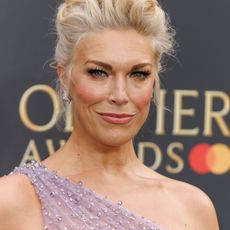 Hannah Waddingham Fiercely Calls Out a Photographer Who Demands She Show More Leg on the Red Carpet
Hannah Waddingham Fiercely Calls Out a Photographer Who Demands She Show More Leg on the Red Carpet“You’d never say that to a man.”
By Rachel Burchfield Published
-
 It Seems Like Everyone’s Obsessed with Rothy’s Shoes
It Seems Like Everyone’s Obsessed with Rothy’s ShoesThis sustainable, one-billion-dollar brand is becoming a go-to for content creators, editors, and A-list celebrities. Here's why.
By Brooke Knappenberger Published
-
 Anya Taylor-Joy Is a Gothic Princess in Dior
Anya Taylor-Joy Is a Gothic Princess in DiorThe 'Queen's Gambit' actress embraced an all-black dress code at the Brooklyn presentation.
By India Roby Published
-
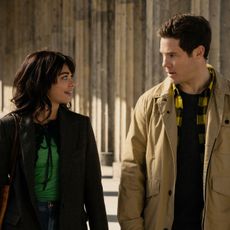 Sarah Hyland and Adam Devine Play 'How Well Do You Know Your Co-Star?'
Sarah Hyland and Adam Devine Play 'How Well Do You Know Your Co-Star?'The 'Modern Family' stars reunited for the 'Pitch Perfect' spinoff series.
By Brooke Knappenberger Published
-
 The 78 Best Celebrity Couple Halloween Costumes of All Time
The 78 Best Celebrity Couple Halloween Costumes of All TimeHonestly, we're impressed.
By Charlotte Chilton Published
-
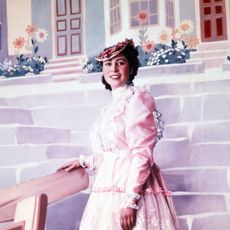 Super Rare Photos of Queen Elizabeth as a Young Woman
Super Rare Photos of Queen Elizabeth as a Young WomanFrom childhood snapshots to portraits as a young princess, beautiful and rare photos of the late Queen Elizabeth as a young woman.
By Mehera Bonner Published
-
 King Charles III and Queen Consort Camilla's Relationship: A Timeline
King Charles III and Queen Consort Camilla's Relationship: A TimelineWith the passing of Queen Elizabeth II, Charles has ascended to the throne as king.
By The Editors Published
-
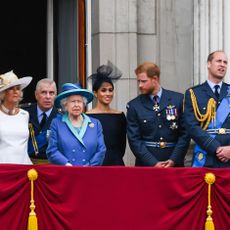 Who Is Next in Line for the British Throne, Explained
Who Is Next in Line for the British Throne, ExplainedAnd yes—Harry and Archie are still in the line of succession.
By Andrea Park Published
-
 Who Is Alexandria Ocasio-Cortez's Fiancé Riley Roberts?
Who Is Alexandria Ocasio-Cortez's Fiancé Riley Roberts?AOC's husband-to-be is an "easygoing redhead" who lives with her in D.C.
By Katherine J. Igoe Published
-
 68 Times the Kardashians Posed Fully Nude and Owned It
68 Times the Kardashians Posed Fully Nude and Owned ItAnd we mean fully nude—as in, not a shred of clothing.
By Bianca Rodriguez Published
-
 Who Is Jonathan Owens, Simone Biles's Fiancé and NFL Player?
Who Is Jonathan Owens, Simone Biles's Fiancé and NFL Player?"The easiest yes!" Simone wrote about the couple's engagement.
By The Editors Published